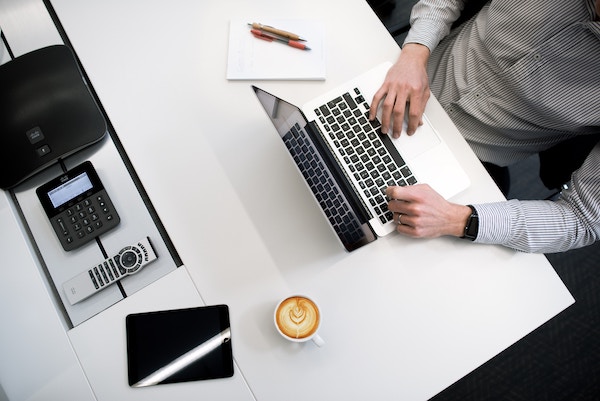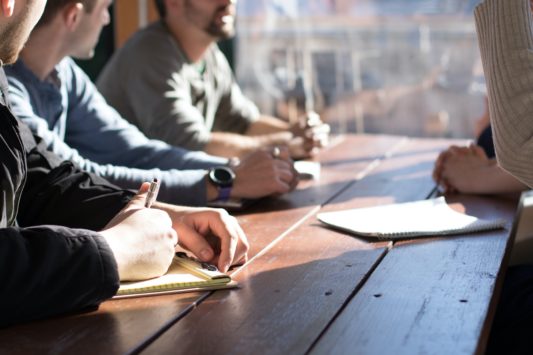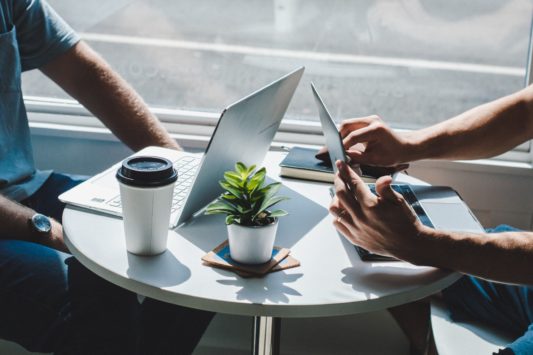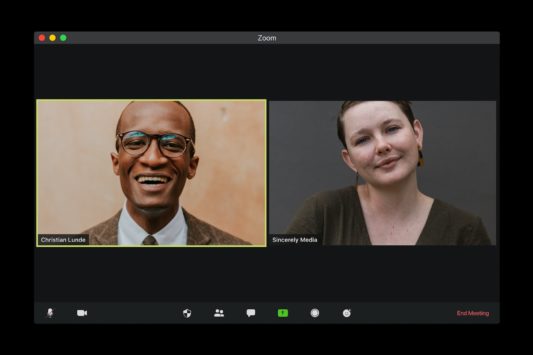How to Best Follow Up After a Job Interview
Interviewing

Finding a job is a complex task, with many different steps and a lot of opportunity for failure. It’s simultaneously made more simple and more complex by technology. On the one hand, you are able to connect much more directly with potential employers and to find many more work opportunities. And yet, on the other hand, the more that you have to handle, the more difficult your life becomes as you try to navigate all of it. Each step of each application needs to be given the same care as the one prior to it and the one that comes after it. This attention also includes your effort and follow-through from the application to the job interview follow up.
If you’re successful in managing your applications and cultivating a strong applicant profile, then you might find that you get an interview.
Interviews are stressful since there’s a sense in which you have one shot to make an impact in person and to demonstrate to your potential employer that you would be a really good person to work with. However, getting the interview done isn’t the last step in your employment seeking process. Even though you will have finished the majority of what you are able to control, there’s still more you can do to ensure that you give yourself that extra little advantage: the ‘follow up’.
Some applicants won’t bother with this. They may not think about it or think it unnecessary. Either way, that could play in your favor, as you may well stand out in front of applicants if you do go ahead with it. You want your potential employer to feel that you are invested in the job, that you are professionally courteous and that you understand the value and importance of networking and professional communication. It’s also a chance for you to refresh their memory of you. This is especially important if you were one of many different candidates.
With all of that said, though, how does one follow up after a job interview in such a way as to capture all of these ideas and positive associations? Well, here are four tips to get you on your way.

Understand The Timeline
I hope you’re reading this before your interview, because this is one that you need to begin before your interview ends. Sometimes, amongst the stress and concentration of a job interview, it can be easy to find that you walk out of the room with no idea of what happens next. It likely won’t dawn on you straight away. Eventually, unless they’ve made it a point to tell you, you’ll realize that you don’t have any concept of when they’re making their decision or when you can expect to hear back.
You need to have this information so that you can make an informed decision about the nature of your follow up to the interview. This means that you need to end your interview with a question about the timeline. Usually, an interviewer will end an interview with, ‘Do you have any questions for us?’. This is your opportunity to ask when you can expect to hear from them.
Once you have that information, you can use it to decide when to follow up.
If they say you won’t hear for a few weeks then you might want to delay your follow up slightly, so that you can give them a little reminder of your candidacy closer to the decision time. If they say a few days, then a near immediate follow up is appropriate. It also gives you a sense of when is appropriate to enquire. Once you have a timeframe given to you, you can get in touch if they are past when they said they would contact you. Don’t be too pushy, something like:
‘Dear X, I hope all’s well. I just wanted to get in touch about my application. I was given a sense that I would find out about my status a few days ago. Will I expect to hear soon? If there’s any other information I can offer you, do let me know.’
Send The Thank You Note
This is the heart of your post-interview communication. It is really something that everyone ought to do, regardless of the role, the interview or the job. It’s simply a question of politeness and of eagerness. This is a great opportunity for you to show that you are keen on communication. Along with showing that you really want to work at their company. It’s also remarkably valuable when you consider how easy it is. “A job interview follow up email is the work of a few minutes. However, it’s a stamp of professionalism and enthusiasm. It’s so easy in fact that it reflects more poorly on you not doing it than it does positively on you for getting it done”, says Waldo Kingsmill, career blogger at Academized and StateOfWriting.
They are, indeed, a simple task. Good thank you notes are brief, up-beat and memorable. The memorability factor will usually be handled by making a specific reference to something that happened in the interview. Here is an example:
‘Hi Jan,
It was great to meet you today and to get a chance to look around the X offices. I’m excited at the prospect of getting to join the team. I particularly enjoyed talking to you about supply side economics and how that has influenced your policy at X.
Very much looking forward to hearing from you.
All the best’
Build A Relationship
Increasingly, employers are looking to construct smart solutions to recruitment. “Rather than casting and re-casting the same giant net into the ocean of applicants for each position, companies are looking to cultivate a small pool of candidates into which they can drop a single fishing line, knowing that whoever bites will be a top candidate suited for their company”, says Anna Ko, business writer at PaperFellows and AustralianHelp. Don’t think about your interview as a black and white, yes or no situation. Of course, to some extent, it is on but in another way it’s a chance to create a relationship between you and the employer. One way to do this is to connect with them through other means. This is a task which can be handled organically in a follow-up email:
Hi Jan,
I was researching further on what we were talking about with regards to supply-side economics and I came across a fantastic article that is very pertinent to everything happening at X at the moment. I wonder if I might be able to connect with you via LinkedIn to share it?
Thanks again’

Keep Checking In
Sometimes, employment is a slow process. The key in terms of following up is not to simply slip off the radar. You need to keep in touch with little check-ins along the way when things are taking a long time. Don’t be too insistent, keep the emails infrequent and naturalistic:
Hi Jan,
Just a short note to congratulate you on receiving the partner position. It must be extremely gratifying after all of your hard work.
Best of luck in the role!
Conclusion
The job interview follow up is a very human act that can come in many different forms. It ought to place its emphasis on communication not on box-ticking or technicalities. By becoming a part of the collective conscious of the recruiters’ minds you can persuade them of your value to the company without putting in more than a few emails.


